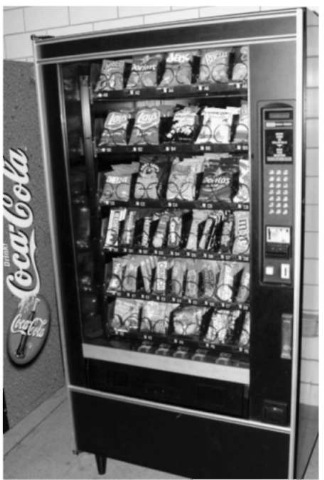In addition to crime, fast food chains have been subjected to violence due to various political, economic, and social causes. An activist French farmer, Jose Bove, became upset in 1999 with tariffs placed on importation of Roquefort cheese into the United States, which he and fellow farmers made. As a result, also in 1999, he and his group, the radical Confederation Paysanne, decided to retaliate by bulldozing a local McDonald’s restaurant under construction in Millau, France. He declared that his action was a challenge to global-ism. When he went on trial, 30,000 people demonstrated on his behalf, carrying signs saying “Non a McMerde.” Bove was convicted and served three months in a French prison. Subsequently, he and his supporters destroyed research plots with genetically modified crops in Brazil and have participated in demonstrations (some of which have turned violent) against globalization.
It addition to violent protests against globalism, fast food chains have been subjected to violence due to international events and causes. In 1979, Marxist guerrillas blew up a McDonald’s outlet in San Salvador and announced that their act was intended as a blow against “imperialist America.” When American aircraft accidentally bombed the Chinese embassy in Belgrade during the war in Yugoslavia in 1999, Chinese students ransacked the McDonald’s in Beijing. During American bombing of Afghanistan in 2001, Pakistan’s Kentucky Fried Chicken outlets were trashed. In 1996, a KFC in Bangalore, India, was looted by farmers who believed that the company threatened their agricultural practices. Anarchists destroyed a McDonald’s in Copenhagen in 1995 and regularly protest at McDonald’s locations in Paris and London. Bombs have destroyed McDonald’s restaurants in St. Petersburg, Russia, Athens, Greece, and Rio de Janeiro, Brazil. Vegetarians set fire to McDonald’s in Antwerp in 1999 and a McDonald’s in London was trashed, also in 1999. In 2000, a bomb was set off in a McDonald’s restaurant in Breton, France, killing a 27-year-old employee; five activists belonging to Emgann, a group considered a front for the Breton Revolutionary Army, were arrested in connection with that action. In 2001, 500 enraged Hindus ransacked a McDonald’s in Bombay, India, and smeared cow dung all over a statue of Ronald McDonald because they wrongly thought that French fries served at Indian restaurants were being fried in beef tallow. In 2002, the McDonald’s in Bali, Indonesia, was bombed by Indonesian terrorists. When American troops attacked Iraq in 2003, protests were held in many cities, and McDonald’s was again the target of many demonstrators. In Moscow, a McDonald’s restaurant was destroyed by a bomb in 2003. In 2005, a bomb destroyed a KFC restaurant in Karachi, Pakistan. Members of the Balochistan Liberation Army, an ethnic Baloch group in the Balochistan province, claimed responsibility and the suspects who were apprehended were members of that group.

Vending machine.
Yet another cause of violence has been crime. In 2001, a bomb was set off in a Xian, China, McDonald’s restaurant that killed two people. Two years later, a man was convicted of the bombing; prior to the bombing, he had sent threatening letters to the management, requesting money. The perpetrator was sent to prison.
Violence
Next post: Waste
Previous post: White Tower
